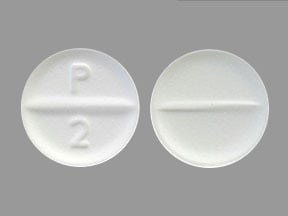
Levo-t Coupons & Savings Card – Discount Prices from $8.35
Brand for: Levothyroxine
My prescription
Edit
50MCG, Levothyroxine (30 Tablets)
Select pharmacy

CVS
$20.55
COUPON PRICE
Albertsons
$8.35
COUPON PRICE
Walgreens
$9.26
COUPON PRICE
Walmart
$16.46
COUPON PRICELevo-t savings card
Show this card to your pharmacist
Albertsons
$8.35
BIN
ID
PCN
GRP
011867
LH7A4EC601
HT
LABH001
Powered by
More prescriptions for thyroid cancer
More prescriptions for thyroid cancer
Price history for Levo-t (brand) & Levothyroxine (generic)
30 Tablets, 50MCG
Average retail price for Levo-t
Average retail price for Levothyroxine
Average SaveHealth price for Levothyroxine
Our price history data is based on aggregated prescription data collected from participating pharmacies in America. Our prescription data updates daily to reflect the latest price changes. If you notice a missing data point, it means there wasn't sufficient data available to generate a monetary value for that date.
Over the last 12 months, the average discount price of Levo-t is $10.23 using the SaveHealth savings card. That's an average savings of 30.50% on Levo-t with our discount card.
*Retail prices are based on pharmacy claims data, and may not be accurate when we don't have enough claims.
Levo-t (Levothyroxine) dosage forms
Dosage Quantity Price from Per unit 25MCG 30 Tablets $10.29 $0.34 25MCG 45 Tablets $10.93 $0.24 25MCG 60 Tablets $11.57 $0.19 25MCG 90 Tablets $18.46 $0.20 25MCG 135 Tablets $20.19 $0.15 50MCG 30 Tablets $10.54 $0.35 50MCG 45 Tablets $11.31 $0.25 50MCG 60 Tablets $12.08 $0.20 50MCG 90 Tablets $19.24 $0.21 50MCG 135 Tablets $21.35 $0.16
| Dosage | Quantity | Price from | Per unit |
|---|---|---|---|
| 25MCG | 30 Tablets | $10.29 | $0.34 |
| 25MCG | 45 Tablets | $10.93 | $0.24 |
| 25MCG | 60 Tablets | $11.57 | $0.19 |
| 25MCG | 90 Tablets | $18.46 | $0.20 |
| 25MCG | 135 Tablets | $20.19 | $0.15 |
| 50MCG | 30 Tablets | $10.54 | $0.35 |
| 50MCG | 45 Tablets | $11.31 | $0.25 |
| 50MCG | 60 Tablets | $12.08 | $0.20 |
| 50MCG | 90 Tablets | $19.24 | $0.21 |
| 50MCG | 135 Tablets | $21.35 | $0.16 |
| 75MCG | 15 Tablets | $9.81 | $0.65 |
| 75MCG | 30 Tablets | $10.62 | $0.35 |
| 75MCG | 45 Tablets | $11.43 | $0.25 |
| 75MCG | 60 Tablets | $12.25 | $0.20 |
| 75MCG | 90 Tablets | $19.46 | $0.22 |
| 88MCG | 15 Tablets | $9.88 | $0.66 |
| 88MCG | 30 Tablets | $10.76 | $0.36 |
| 88MCG | 45 Tablets | $11.64 | $0.26 |
| 88MCG | 60 Tablets | $12.52 | $0.21 |
| 88MCG | 90 Tablets | $19.83 | $0.22 |
| 100MCG | 30 Tablets | $10.72 | $0.36 |
| 100MCG | 45 Tablets | $11.58 | $0.26 |
| 100MCG | 60 Tablets | $12.44 | $0.21 |
| 100MCG | 90 Tablets | $19.95 | $0.22 |
| 100MCG | 180 Tablets | $24.90 | $0.14 |
| 112MCG | 30 Tablets | $11.09 | $0.37 |
| 112MCG | 45 Tablets | $12.13 | $0.27 |
| 112MCG | 60 Tablets | $13.17 | $0.22 |
| 112MCG | 90 Tablets | $20.83 | $0.23 |
| 112MCG | 180 Tablets | $26.66 | $0.15 |
| 125MCG | 6 Tablets | $9.41 | $1.57 |
| 125MCG | 30 Tablets | $11.07 | $0.37 |
| 125MCG | 45 Tablets | $12.11 | $0.27 |
| 125MCG | 60 Tablets | $13.15 | $0.22 |
| 125MCG | 90 Tablets | $20.79 | $0.23 |
| 125MCG | 180 Tablets | $26.58 | $0.15 |
| 137MCG | 30 Tablets | $11.03 | $0.37 |
| 137MCG | 45 Tablets | $12.05 | $0.27 |
| 137MCG | 60 Tablets | $13.06 | $0.22 |
| 137MCG | 90 Tablets | $21.72 | $0.24 |
| 137MCG | 180 Tablets | $28.43 | $0.16 |
| 150MCG | 30 Tablets | $11.14 | $0.37 |
| 150MCG | 45 Tablets | $12.20 | $0.27 |
| 150MCG | 60 Tablets | $13.27 | $0.22 |
| 150MCG | 90 Tablets | $21.32 | $0.24 |
| 150MCG | 180 Tablets | $27.64 | $0.15 |
| 175MCG | 14 Tablets | $10.26 | $0.73 |
| 175MCG | 30 Tablets | $11.70 | $0.39 |
| 175MCG | 45 Tablets | $13.05 | $0.29 |
| 175MCG | 60 Tablets | $14.41 | $0.24 |
| 175MCG | 90 Tablets | $24.51 | $0.27 |
| 200MCG | 30 Tablets | $11.38 | $0.38 |
| 200MCG | 45 Tablets | $12.57 | $0.28 |
| 200MCG | 60 Tablets | $13.76 | $0.23 |
| 200MCG | 90 Tablets | $22.44 | $0.25 |
| 200MCG | 180 Tablets | $29.87 | $0.17 |
| 300MCG | 30 Tablets | $6.82 | $0.23 |
| 300MCG | 60 Tablets | $11.13 | $0.19 |
| 300MCG | 90 Tablets | $21.95 | $0.24 |
| 300MCG | 120 Tablets | $26.27 | $0.22 |
| 300MCG | 180 Tablets | $34.72 | $0.19 |
Is levo-T the same as levothyroxine?
Yes, Levo-T is a brand name for the medication levothyroxine. They both contain the same active ingredient and are used to treat hypothyroidism by replacing or supplementing the thyroid hormone.
Using the SaveHealth discount card, what is the price of Levo-t without insurance?
Using the SaveHealth discount card, the price of Levo-t without insurance is $8.35.
What is the price of Levo-t at CVS?
The price of Levo-t at CVS is $20.55.
What is the price of Levo-t at Walgreens?
The price of Levo-t at Walgreens is $9.26.
What is the price of Levo-t at Walmart?
The price of Levo-t at Walmart is $16.46.
